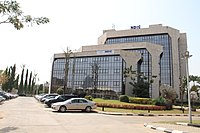1
According to Statista, Africa’s plastic surgery and devices market is anticipated to witness significant revenue growth, with projections indicating it will reach a staggering $540.24 million in 2025.
The increase is expected to continue at a compound annual growth rate of 6.70%, culminating in a market volume of $747.28 million by 2030.
According to the Voice of America (VOA) news, South Africa remains the most popular destination for plastic surgery in Africa, attracting medical tourists from Europe and the United States, as well as a recent surge in clients from Sub-Saharan Africa.
Plastic surgery is commonly associated with aesthetic procedures like facelifts or non-surgical treatments, but this perception is not entirely accurate. In reality, this specialty helps patients recover from injury or illness.
St. George’s University (SGU) School of Medicine in Grenada, West Indies, highlights the appeal of plastic surgery and the journey to becoming a fully qualified surgeon in Africa.
The appeal of plastic surgery
Plastic surgery does more than enhance beauty and confidence.
It also restores physical function and transforms lives, making the specialty an attractive career path for aspiring doctors.
Plastic surgery encompasses a diverse range of procedures, from intricate microsurgery to optional cosmetic improvements.
Working in this specialty provides opportunities to collaborate with specialists from other fields, including general surgery, gynecology, and neurosurgery.
Plastic surgery also makes a profound impact on a patient’s life physically and emotionally.
These procedures can help patients regain their appearance, sense of identity, confidence, and overall well-being.
Plastic surgeons are ranked among the highest-paying medical specialties, requiring years of training and extensive surgical expertise.
While financial incentives are not the sole reason physicians choose this path, they can certainly align with a genuine passion for solving complex problems and making a visible, lasting impact on patients’ lives. For many plastic surgeons, the field offers a combination of professional fulfillment and financial stability.
The path to becoming a plastic surgeon
The path to becoming a plastic surgeon starts with earning a medical degree from an accredited institution.
This typically involves 4–6 years of study, including pre-clinical studies and hospital-based clinical training, depending on students’ academic backgrounds.
After graduation, aspiring doctors must pass national licensing examinations to practice medicine.
Following licensure, doctors typically enter a residency program. Depending on the country’s training structure, this may be in general surgery first or directly in plastic surgery.
Residency usually spans five to seven years, offering extensive hands-on surgical training.
Upon completion, candidates must pass board or specialty certification examinations administered by relevant professional bodies to become fully qualified plastic surgeons.
For example, in South Africa, this process is overseen by the Health Professions Council of South Africa (HPCSA), whereas in Nigeria, it is regulated by the Nigerian Association of Plastic, Reconstructive and Aesthetic Surgeons (NAPRAS).
For more information on how SGU School of Medicine can prepare aspiring African doctors, visit SGU’s website.








